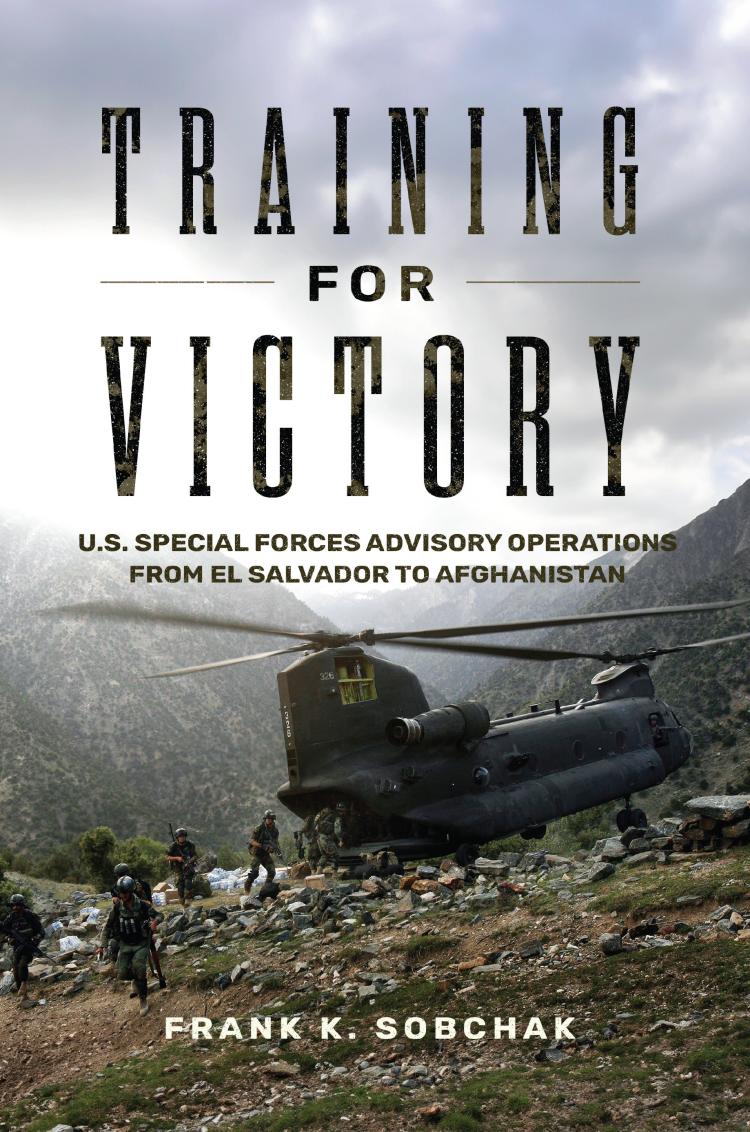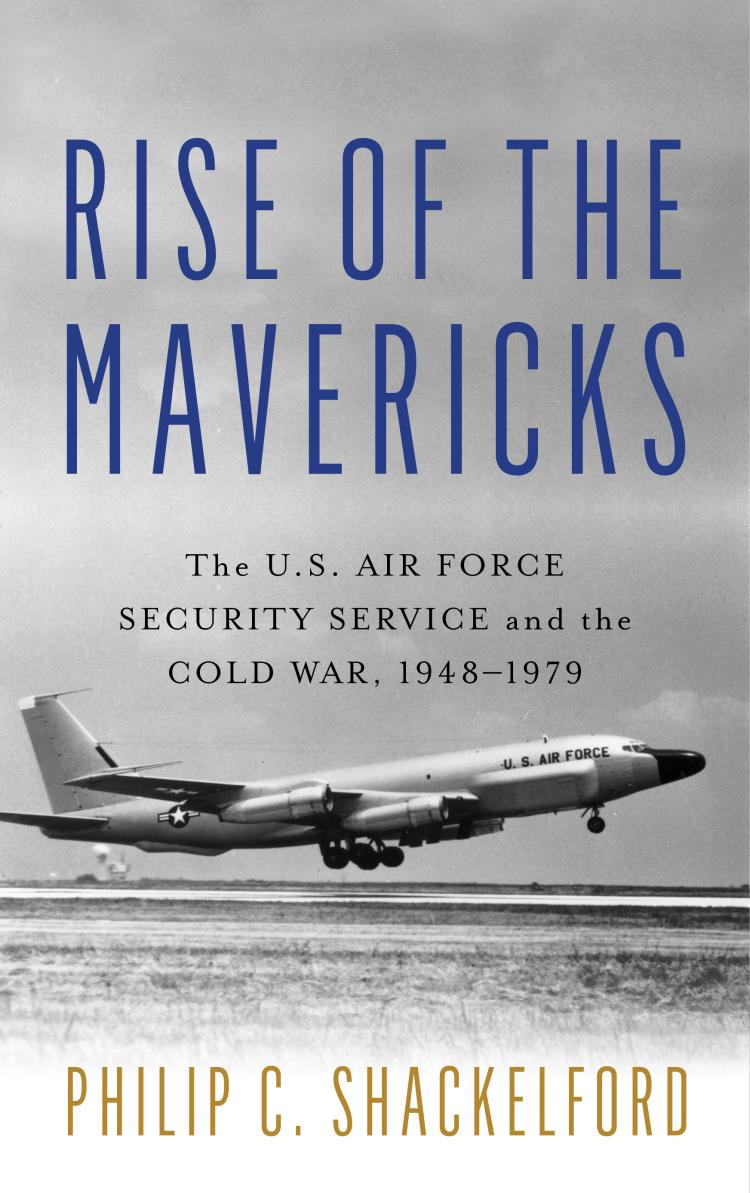Training for Victory
U.S. Special Forces Advisory Operations from El Salvador to Afghanistan
- Subject: Fall 2024 Catalog
- Format:
Hardcover
- Pages:
352pages
- Illustrations:
26 B/W Photos
- Published:
November 19, 2024
- ISBN-10:
1682471330
- ISBN-13:
9781682471333
- Product Dimensions:
9 × 6 × 1 in
- Product Weight:
24 oz
Overview
One of the most difficult security challenges of the post–Cold War era has been stabilizing failing states in an era of irregular warfare. A consistent component of the strategy to address this problem has been security force assistance where outside powers train and advise the host nation’s military.
Despite billions of dollars spent, the commitment of thousands of advisors, and innumerable casualties, the American efforts in Afghanistan and Iraq failed catastrophically. Nevertheless, among those colossal military disasters were pockets of success. The Iraqi Special Operations Forces (ISOF) held back the Islamic State in 2014 long enough to allow American and allied forces to flow back into the country, and many Afghan commando units fought to the bitter end as their country disintegrated around them.
What made those units successful while the larger missions ended disastrously? Author Frank K. Sobchak explores security force assistance across five case studies, examining what factors were most critical for U.S. Special Forces units to build capable partners like the ISOF and the commandos. More specifically, the book assesses the impact of five components of Special Forces advisory missions: language training and cultural awareness of the advising force; the partner force-to-advisor ratio; the advisors’ ability to organize host-nation forces; whether advisors are permitted to guide in combat; and the consistency in advisor pairing.
Based on the experiences of U.S. Army Special Forces in El Salvador (1981–1991), Colombia (2002–2016), the Philippines (2001–2015), Iraq (2003–2011), and Afghanistan (2007–2021), Sobchak argues that the most crucial factors in producing combat-effective partners are consistency in advisor pairing and maintaining a partner force-to-advisor ratio of twelve special forces soldiers advising a company-sized force or smaller. Intriguingly, and counter to conventional wisdom, at first glance language training and cultural awareness do not seem to be critical factors, as most of the Green Berets that trained units in Iraq and Afghanistan lacked both capabilities. Despite an orthodoxy that argues the opposite, there is little evidence that combat advising is decisive in producing effective partners and there is conflicting evidence that language training and cultural awareness are important. Many of these findings, while focused on Special Forces operations and doctrine, could be used to improve the odds of success for larger security-force assistance missions as well.
Despite billions of dollars spent, the commitment of thousands of advisors, and innumerable casualties, the American efforts in Afghanistan and Iraq failed catastrophically. Nevertheless, among those colossal military disasters were pockets of success. The Iraqi Special Operations Forces (ISOF) held back the Islamic State in 2014 long enough to allow American and allied forces to flow back into the country, and many Afghan commando units fought to the bitter end as their country disintegrated around them.
What made those units successful while the larger missions ended disastrously? Author Frank K. Sobchak explores security force assistance across five case studies, examining what factors were most critical for U.S. Special Forces units to build capable partners like the ISOF and the commandos. More specifically, the book assesses the impact of five components of Special Forces advisory missions: language training and cultural awareness of the advising force; the partner force-to-advisor ratio; the advisors’ ability to organize host-nation forces; whether advisors are permitted to guide in combat; and the consistency in advisor pairing.
Based on the experiences of U.S. Army Special Forces in El Salvador (1981–1991), Colombia (2002–2016), the Philippines (2001–2015), Iraq (2003–2011), and Afghanistan (2007–2021), Sobchak argues that the most crucial factors in producing combat-effective partners are consistency in advisor pairing and maintaining a partner force-to-advisor ratio of twelve special forces soldiers advising a company-sized force or smaller. Intriguingly, and counter to conventional wisdom, at first glance language training and cultural awareness do not seem to be critical factors, as most of the Green Berets that trained units in Iraq and Afghanistan lacked both capabilities. Despite an orthodoxy that argues the opposite, there is little evidence that combat advising is decisive in producing effective partners and there is conflicting evidence that language training and cultural awareness are important. Many of these findings, while focused on Special Forces operations and doctrine, could be used to improve the odds of success for larger security-force assistance missions as well.
About the Author
Editorial Reviews
"A superbly written, extensively researched, and very illuminating examination of what most determines success in the conduct of security force assistance missions – endeavors that have become increasingly important for the American military in recent decades because, if they are done right, they can preclude substantial employment of US forces on the front lines of irregular conflicts. In Training for Victory, former Special Forces officer Frank Sobchak upends much of the conventional wisdom of security force assistance and provides a compelling explanation of how to do it right. Training for Victory clearly establishes Frank as one of the preeminent contemporary voices on how to build foreign armies. A very important book!"—Gen. David Petraeus, USA (Ret.), former CENTCOM Command, former Director of the CIA, co-author of Conflict: The Evolution of Warfare from 1945 to Ukraine.
"Training for Victory may be the most important book on military affairs to be published in recent years. The history of training and advising partner forces reveals that the United States can remain engaged in the world and advance the interests of the American people at low cost and risk. The alternative - retrenchment and disengagement - would result in high-cost wars and interventions."—Lt. Gen. H.R. McMaster, USA (Ret.), former National Security Advisor and author of Dereliction of Duty
"Frank Sobchak's excellent analysis of Special Forces partner development operations goes a long way toward explaining the factors underpinning the Green Berets' well-deserved reputation as the preeminent trainers of foreign partners. In a discussion often dominated by dogma, Dr. Sobchak provides a welcome evidence-based study. It is particularly timely, as the US military grapples to understand its strategic failure to develop credible partners in Iraq and Afghanistan, despite an enormous expenditure in time, treasure, and lives. It is a must read for those that will be asked to attempt to do so in the future."—Lt. Gen, Ken Tovo, USA (Ret.), former Commanding General, U.S. Army Special Operations Command
"An important examination of the handful of effective military units built during the 9-11 wars. Sobchak’s penetrating analysis and actionable recommendations are a must-read for anyone concerned about future proxy wars with China, Russia, and Iran."—Sean McFate, Professor, Georgetown University’s Walsh School of Foreign Service, NDU’s College of International Security Affairs, and author of The New Rules of War
"Frank Sobchak is a scholar-practitioner of the highest caliber, and there is no one better qualified to examine the critical subject of security force assistance. His Training for Victory offers valuable lessons on how to successfully build foreign militaries that should inform policymakers on such a critical foreign policy tool."—Richard Shultz, Shelby Cullom Davis Professor of International Security Studies, The Fletcher School, Tufts University
"An outstanding contribution to the literature on special operations and irregular warfare, one that is full of strategy and policy insights for senior leaders to consider. Bravo!"—Michael G Vickers, former Special Forces officer, CIA officer, Undersecretary of Defense for Intelligence, and author of By All Means Available
"As both a professional historian and a Special Forces officer with multiple deployments Frank Sobchak is perhaps uniquely qualified to assess what worked and what didn’t work across multiple conflicts during which US Special Forces worked “by with and through” local forces such as the Iraqi Special Operations Forces. Training for Victory is an invaluable contribution both for practitioners in the field and for those interested in the history of America’s “advise and assist” missions."—Peter Bergen, Chairman, Global SOF Foundation and author of The Rise and Fall of Osama bin Laden.
"Sobchak challenges one of the long-held consensus views in the American advising community, which attaches high importance to advisors knowing the language and culture of the partner nation. He makes a compelling case that a low partner-to-advisor force ratio is the key to success."—Forrest Marion, author of Flight Risk: The Coalition's Air Advisory Mission in Afghanistan, 2005-2015.









